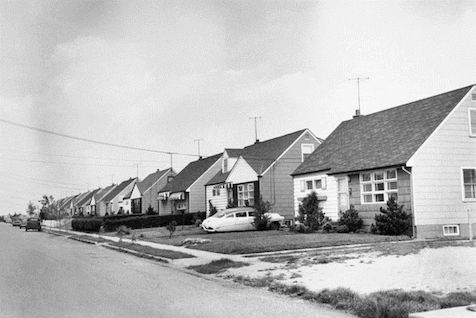[2-minute read]
“Hey. Remember that time when we met and talked about a reverse mortgage 3 years ago and you said no? Do you want to talk again?” That approach would be somewhat believable if it were from a Saturday Night Live skit. No reverse mortgage professional with a functioning cerebral cortex would ever utter such words. However, it’s easy to find oneself saying something that while less abrasive, pretty much reflects the same sentiment- ‘you said no and I can still help you’.
While you typically ‘think in reverse’ 16 hours each day your previous potential borrowers do not. In fact, count yourself lucky if they even remember your name. For the handful of you reading who kept in touch with newsletters, birthday cards, or phone calls- congratulations. [read more]
Our once-normal lives are changing at warp speed. Many older homeowners could find themself facing a financial crisis after being laid off or no longer receiving dividend income from their stocks. Would these unfortunate events cause them to think of you first, pick up the phone, and spill out their problems? In rare instances yes, but not likely.
And this is where a better approach gets you in front of an informed, motivated, and qualified prospective borrower. Here’s one example.
“Hello, Mrs. Hayes. This is Shannon. We met last August. Yes, before the coronavirus. How are you? The reason for my call was to check in and see if anything has changed for you since we last spoke.” Briefly mention any important facts they shared during your first meeting.
After that, it’s your turn to actively listen and take notes.
They may say ‘not much’ or ‘nothing’ in reply to your query. They may explain that they’re concerned they’ll run out of money because of the virus’ impact on our economy. Regardless, there are three things you’ll want to say. First, interest rates are at historic lows which means they stand to qualify for more money. Second, home values may be at their peak which increases their ultimate cash benefit. Third, ask how they feel about their accumulated home equity? Do they consider it to be safe? In an ideal world, what would they like to do with the equity that’s grown over the years?
If they insist they don’t need to further explore a reverse mortgage, ask them if they know anyone over 60 who may benefit.
You may have noticed that this ‘check-in’ call gives you the opportunity to ask open-ended questions and listen to learn what financial pressures they face. Keep it casual and empathetic. Your two goals are to actively listen and then schedule a follow-up meeting (in-person or remote) to explore a reverse mortgage when suitable.
[/read]








 Imagine
Imagine